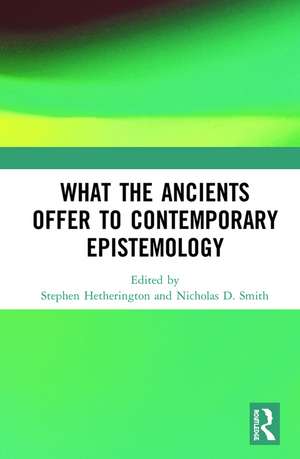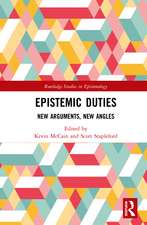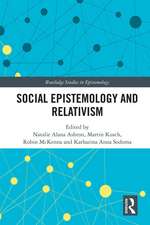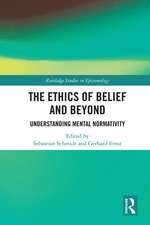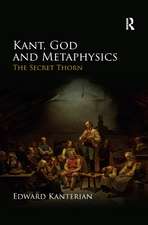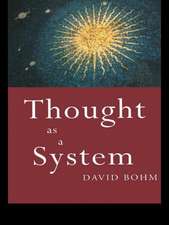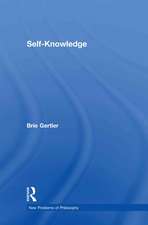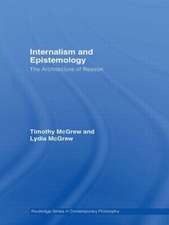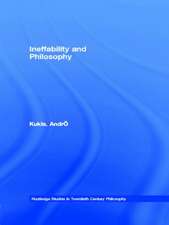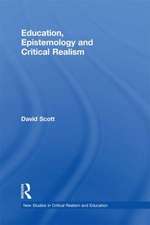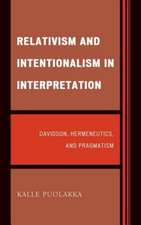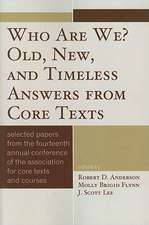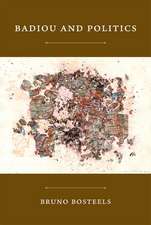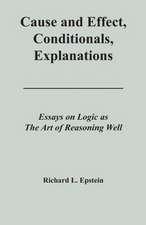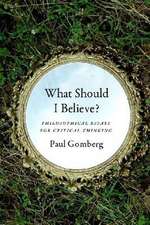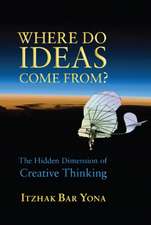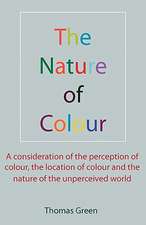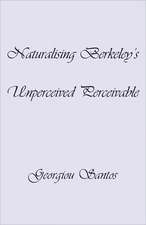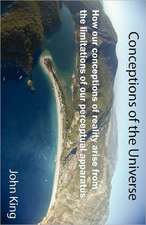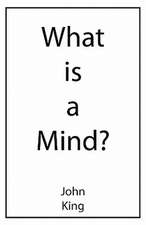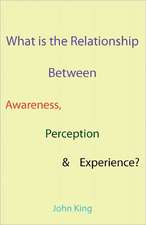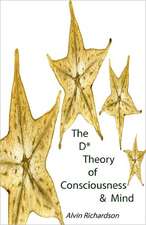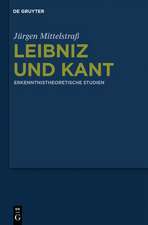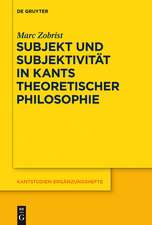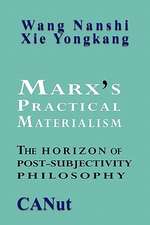What the Ancients Offer to Contemporary Epistemology
Editat de Stephen Hetherington, Nicholas D. Smithen Limba Engleză Hardback – 25 sep 2019
Key features:
- Blends ancient epistemology with contemporary epistemology, each reciprocally enriching each.
- Conceptually sensitive chapters by scholars of ancient epistemology.
- Historically sensitive chapters by scholars of contemporary epistemology.
- Clearly written chapters, guiding readers at once through central elements both of ancient and of contemporary epistemology.
Preț: 1001.07 lei
Preț vechi: 1220.81 lei
-18% Nou
Puncte Express: 1502
Preț estimativ în valută:
191.55€ • 200.01$ • 158.18£
191.55€ • 200.01$ • 158.18£
Carte tipărită la comandă
Livrare economică 16-30 aprilie
Preluare comenzi: 021 569.72.76
Specificații
ISBN-13: 9780367361402
ISBN-10: 036736140X
Pagini: 250
Ilustrații: 2
Dimensiuni: 152 x 229 x 13 mm
Greutate: 0.48 kg
Ediția:1
Editura: Taylor & Francis
Colecția Routledge
Locul publicării:Oxford, United Kingdom
ISBN-10: 036736140X
Pagini: 250
Ilustrații: 2
Dimensiuni: 152 x 229 x 13 mm
Greutate: 0.48 kg
Ediția:1
Editura: Taylor & Francis
Colecția Routledge
Locul publicării:Oxford, United Kingdom
Public țintă
UndergraduateCuprins
Introduction: Ancient Epistemology’s Potential Significance for Contemporary Epistemology 1. Socrates' Version of the Opacity Objection 2. Knowledge-Minimalism: Reinterpreting the Meno on Knowledge and True Belief 3. Plato on Veritism and Value 4. Forms, Exemplars, and Plato 5. Is Plato’s Epistemology about Knowledge? 6. Plato’s Ideal Epistemology 7. Plato on Having a Logos (Theaetetus 201c–210a) 8. Transmitting Understanding and Know-How 9. Aristotle’s Disjunctivism 10. Aristotle’s Virtue Epistemology 11. Aristotle and Scepticism 12. Pyrrhonian Scepticism and Human Agency 13. Academic Justifications of Assent
Recenzii
CHOICE 'Highly Recommended':
"Students taking historically oriented philosophy courses frequently say they do not see how figures such as Plato and Aristotle matter to current philosophical problems. In the same spirit, contemporary epistemologists rarely refer back to the ancients for help with or insight into current issues. [Volume editors] Hetherington and Smith, both prolific authors, attempt to rectify this and show that both contemporary epistemology and ancient philosophy (specifically, ancient Greek epistemology) can develop new lines of thought and solve pressing problems by looking to the other. As one might expect, Plato and Aristotle dominate the collection (with seven and three essays, respectively), but there are also insightful essays on the Academics, Pyrrhonian skepticism, and understanding. Among the contemporary issues addressed are know-how, understanding, conceptions of knowledge, virtue epistemology, skepticism, and the so-called swamping problem. Revealing the value of the epistemology of ancient Greece, this volume is an ideal resource for courses in both ancient Greek philosophy and contemporary epistemology. Summing up: Highly recommended."
--J. McBain, in CHOICE
"Students taking historically oriented philosophy courses frequently say they do not see how figures such as Plato and Aristotle matter to current philosophical problems. In the same spirit, contemporary epistemologists rarely refer back to the ancients for help with or insight into current issues. [Volume editors] Hetherington and Smith, both prolific authors, attempt to rectify this and show that both contemporary epistemology and ancient philosophy (specifically, ancient Greek epistemology) can develop new lines of thought and solve pressing problems by looking to the other. As one might expect, Plato and Aristotle dominate the collection (with seven and three essays, respectively), but there are also insightful essays on the Academics, Pyrrhonian skepticism, and understanding. Among the contemporary issues addressed are know-how, understanding, conceptions of knowledge, virtue epistemology, skepticism, and the so-called swamping problem. Revealing the value of the epistemology of ancient Greece, this volume is an ideal resource for courses in both ancient Greek philosophy and contemporary epistemology. Summing up: Highly recommended."
--J. McBain, in CHOICE
Notă biografică
Stephen Hetherington is Professor of Philosophy at the University of New South Wales, in Sydney, Australia, and Editor-in-Chief of the Australasian Journal of Philosophy. His publications include Epistemology’s Paradox (1992), Good Knowledge, Bad Knowledge (2001), How to Know (2011), and Knowledge and the Gettier Problem (2016).
Nicholas D. Smith is the James F. Miller Professor of Humanities in the Departments of Classics and Philosophy at Lewis & Clark College in Portland, Oregon. His publications include Summoning Knowledge in Plato’s Republic (2019), Knowledge (with Ian Evans) (2012), and Socratic Moral Psychology (with Thomas C. Brickhouse) (2010).
Nicholas D. Smith is the James F. Miller Professor of Humanities in the Departments of Classics and Philosophy at Lewis & Clark College in Portland, Oregon. His publications include Summoning Knowledge in Plato’s Republic (2019), Knowledge (with Ian Evans) (2012), and Socratic Moral Psychology (with Thomas C. Brickhouse) (2010).
Descriere
This book encourages renewed attention by contemporary epistemologists to an area most of them overlook: ancient philosophy. Readers are invited to revisit writings by Plato, Aristotle, Pyrrho, and others, and to ask what new insights might be gained from those philosophical ancestors.
